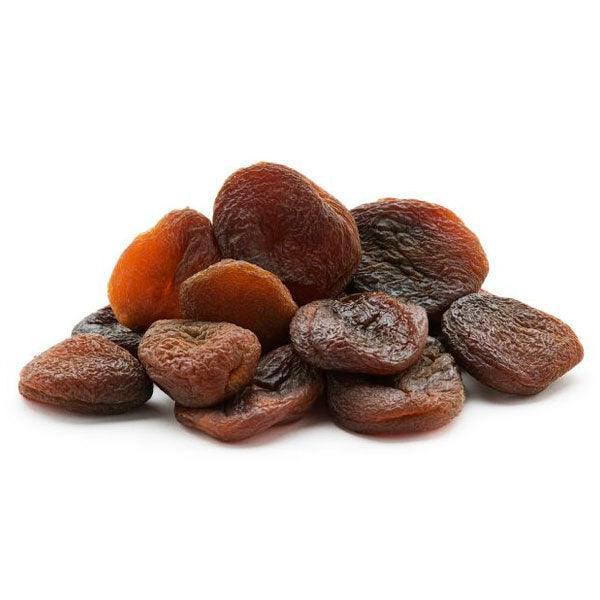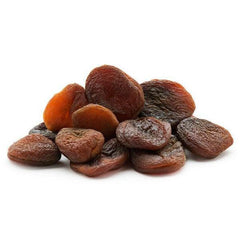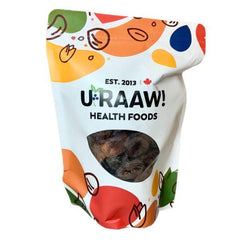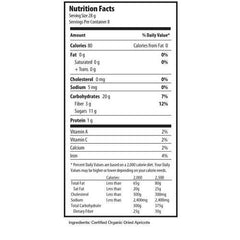





Description
xPerfectly portable and irresistibly delicious, our dried apricots are a healthy snack you’ll love. Certified organic and grown without pesticides, they are packed with energy-boosting carbohydrates, vitamin A, potassium, and fiber, making them as nutritious as they are flavourful.
Nutritional Highlights
Here’s what makes dried apricots a standout snack:
- High in Fiber: Supports healthy digestion.
- Rich in Potassium: Essential for maintaining electrolyte balance.
- Excellent Source of Vitamin A: Promotes optimal vision and skin health.
- Trace Minerals: Contains iron and magnesium for overall well-being.
A 40-gram serving contains:
- 130 calories
- 31 grams of carbohydrates
- 1 gram of protein
- 0 grams of fat
- 2 grams of fiber
Health Benefits
- Improves Digestive Health: Fiber helps maintain regularity and gut health.
- Protects Heart Health: Beta carotene may prevent LDL cholesterol oxidation.
- Enhances Vision: Vitamin A supports eye health and may lower the risk of cataracts and other eye issues.
Dried apricots’ standout nutrient is vitamin A, a powerful antioxidant. It combats free radicals, protecting your eyes and reducing damage to the lenses over time.
Fun Facts About Dried Apricots
- 95% of US apricots are grown in California.
- China and Turkey are the world’s largest apricot producers.
- The word “apricot” means “precious” in Latin.
- Dried apricots were enjoyed by astronauts during Apollo moon missions.
Storage Tips for Maximum Shelf Life
- Store in an airtight container in a cool, dark place for 6–12 months.
- Refrigerate for up to 2 years.
- Freeze to extend shelf life even further.
How to Enjoy Dried Apricots
Dried apricots are a versatile snack or ingredient! Enjoy them on their own or try these ideas:
- Add to your favourite trail mix for a boost of energy.
- Chop and sprinkle on cereal, oatmeal, or yogurt.
- Make dried apricot jam for a delicious spread.
- Incorporate into muffins, cookies, or pancakes.
- Use in your favorite dessert recipes for a fruity twist.
Elevate your snacking with the natural sweetness and health benefits of dried apricots!
- Choosing a selection results in a full page refresh.


